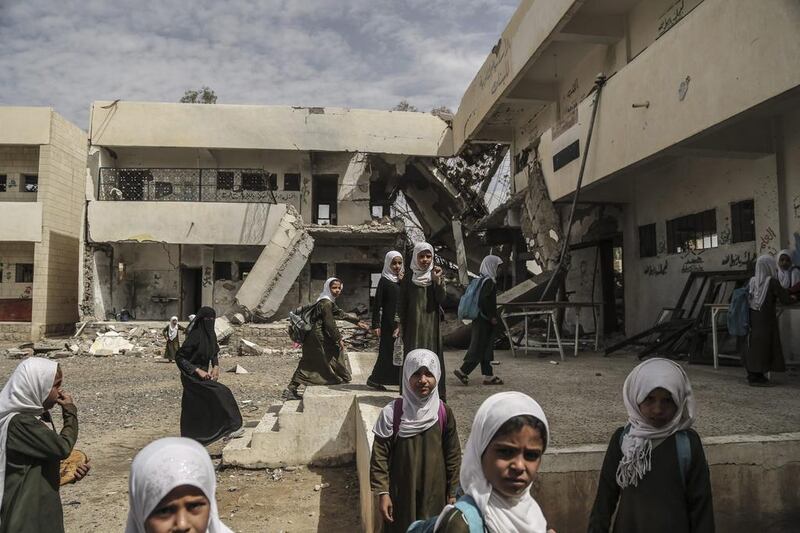Nadia Alzoum has not been able to complete her education in Sanaa. Conflict has forced the 15-year-old girl to stop going to school.
“I was studying with my classmates in the 9th grade.
“Like many classmates, I was dreaming of pursuing my education. Unfortunately, the war and my family's financial position has deteriorated. Now, I cannot continue,” she said.
Today she has one hope: going back to her school.
Alzoum is one of many students who have stopped going to their classrooms as the situation deteiorates in several areas of the country. Many teachers have also left their jobs.
“The conflict has forced several teachers to stop practising their profession. There are various reasons. They are either displaced by the conflict or they shift to another job, trying to earn money to provide for their families or their schools are simply turned into rubble by the war," according to Taher Al Shalfi, the information manager at the Sanaa-based Studies Centre and Education Media.
The Iranian-allied Houthi militants seized Sanaa in September 2014. In March 2015, they ousted Yemen's legitimate government and pushed into Yemen's south. An all-out conflict broke out, and it continues today.
“The war has destroyed 3,000 school buildings. The students have stopped their studies, although some others have resorted to primitive schools, struggling to receive classes,” said Mr Al Shalfi.
He said that, “1.3 million students were deprived of education last year, and only 40 per cent of teachers in the country were able to exercise their duties.”
There are many problems, according to Naji Mohammed, a director in the education office in Al Jawf province. “Teachers have not been receiving their salaries for four months. This is a major demotivating factor," he said.
Several school in Al Jawf have not opened this year. Districts such as Al Ghail have zero education-related activities. Unicef estimates the number of out-of-school children has ballooned to 2 million.
This bitter hardship will not be smoothed away so long as the civil strife persists. “The situation will be further complicated as there is no support for education by donors who largely contribute to funding this sector in Yemen,” Mr Mohammed said.
Alzoum quit her school education after her parents fell short of money. Her case is representative of many students. The economy has been crippled, and the people have felt the consequences of the plight.
“My father used to have his own business. We were leading a good life. As the war dragged on, my father's business lost profits, leading finally to closure,” Alzoum said.
Salaries have not been paid, adding to the misery for teachers.
“A lot of teachers cannot pay for transportation to the school. They have no option but to stay home or search for work. Although a few others volunteer to teach, this is not sufficient to solve this problem,” said Mr Mohammed.
Additionally, a shortage of school textbooks is a serious issue. The education level in Yemen has dramatically plummeted. The basic items the students presently need in the classrooms are non-existent.
Khalid Al Karimi is a freelance reporter and translator from Yemen





